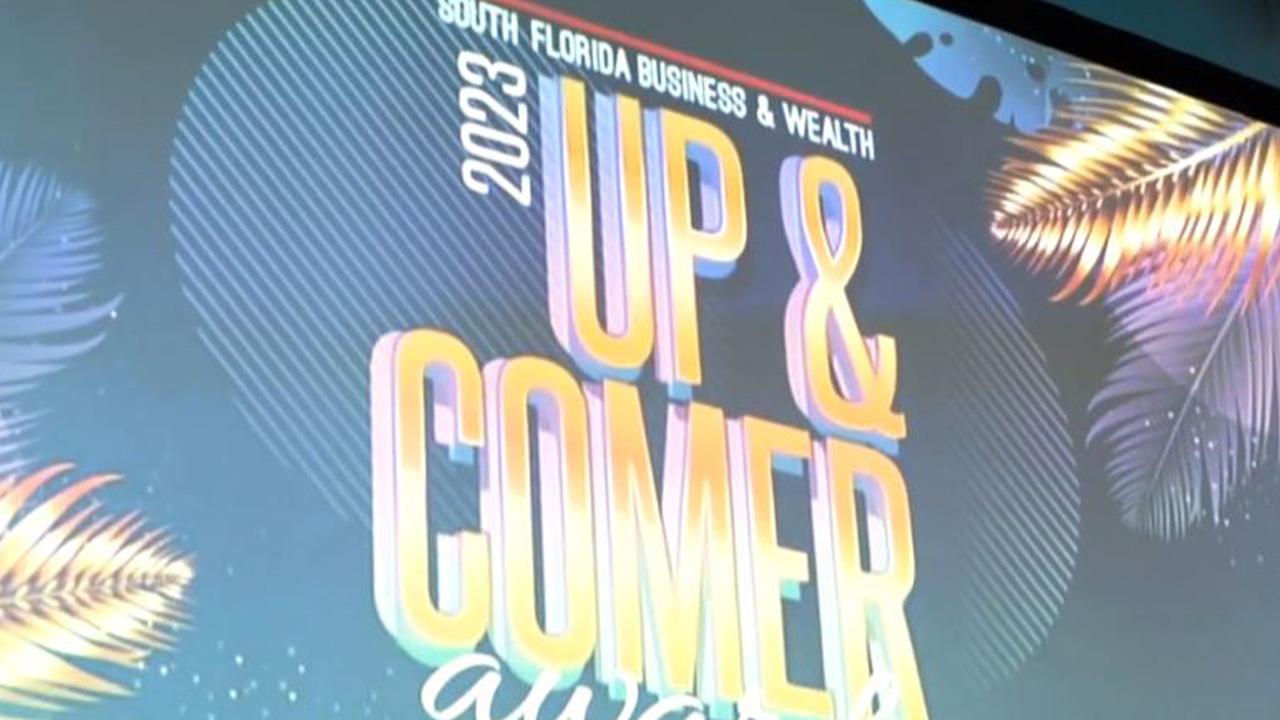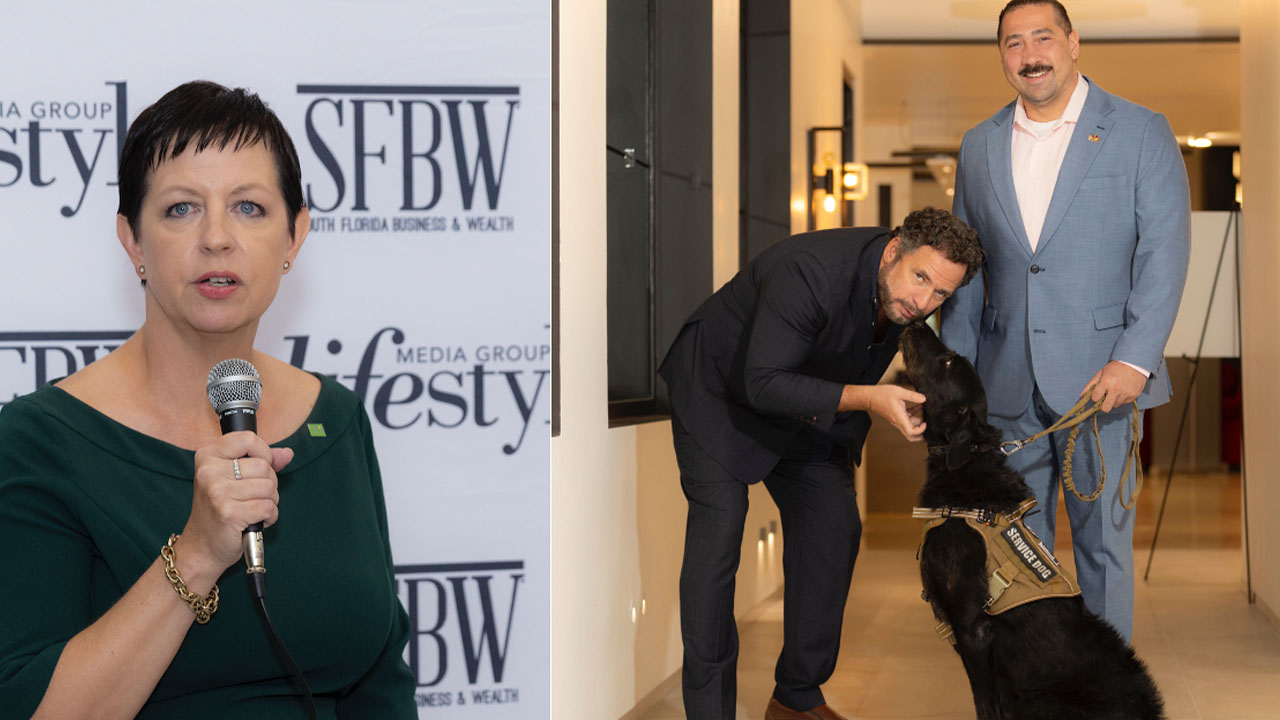[vc_row css_animation=”” row_type=”row” use_row_as_full_screen_section=”no” type=”full_width” angled_section=”no” text_align=”left” background_image_as_pattern=”without_pattern”][vc_column][vc_column_text]
The person who thought up the word “outsourcing” probably didn’t have temporary CFOs in mind. But Russell Slappey, a CPA and the founder and CEO of Nperspective, has taken outsourcing to a whole new level.
His company, with four Florida locations including Miami and Boca Raton, is a treasure trove of talent, with interim, project-based and fractional CFOs in the house,
as well as a roster of financial advisers. In uncertain times like these, Nperspective’s services have never been more essential—or sought after.
“We’ve had a surge of clients needing help with cash flow forecasting, understanding their financial situation and profitability, helping them with their PPP loans, and now we’re getting into forgiveness calculations and reshaping organizations,” he says. “We’ve actually landed eight to 10 new clients over the last four months. We’ve been helping companies that haven’t been as fortunate as us.” Managing principal Anthony Foscolos, who has a résumé studded with CEO, CFO and COO roles, adds: “It’s a turbulent time,” which means clients need them now more than ever.
If many businesses, large and small, regard the economic fallout from COVID-19 as a break-glass moment, Nperspective can step in to offer calm and clarity. What’s the first thing a company should do to reorganize during a crisis? “Be realistic about where you are, what COVID-19 has done to your business,” Slappey says. “You have to learn to adapt, or perish. You have to be able to make the changes required to survive. PPP loans are temporary, so you have to take that into account. You have to look past that to prioritize which vendors you retain, because there may not be additional government money coming. We’ve been through this in 2007 and 2008, and there are some strategies.”
Foscolos reaches back into the beginnings of evolutionary biology for an analogy. “Charles Darwin looked at who is surviving over time,” he notes. “The seemingly strongest might not be the ones to survive—the dinosaurs didn’t survive.” Then, Foscolos continues, Darwin examined whether the most intelligent species survived, but they came up short as well. “So what is it that creates survival? Those quickest to adapt to change,” he concludes. “We all like to hold on to what we know and knew. But you have to learn to live within that new paradigm. Assess where you’re at because you do need to move and you do need to change.” Now for some practical advice: “It’s critical to have meaningful financial reports as your navigation system. If you’re not dialed into that, you need to start recreating it as fast as you can.”
“People say that cash is king, and I agree to a point, but if you’re not profitable, cash is going to run out,” Foscolos says. “Focus on profits—on an accrual method instead of money in, money out.” Cash flow, he notes, comes from operating. Other methods that come in handy when the economy stalls—selling assets, getting bank loans, a cash infusion by owners—are merely temporary fixes. “What we like to do is analyze the profit and loss every month, and then we like to project things,” he says. “If you’ve run your business for a number of years, you know how to run it at a lower level. Define goals a month in advance, then see how that month turned out.” Rinse and repeat. That’s how a business creates what Foscolos calls “a living forecast.”
Slappey says “forecasts are estimates, not actual, so comparing the two is going to drive your decisions over the next six months or a year, from layoffs to office space. As a CFO firm, we’re hired to build that forecast.” Slappey advises business owners to bore into the details, especially variable costs versus fixed costs. He says that incremental product costs that didn’t seem like a big deal pre-COVID-19 just became a big deal.
“Maybe it’s time to look for new vendors,” he suggests. He recommends exploring volume pricing with vendors—if you have four materials or services pegged to four different vendors, consider bringing everything under one roof. And then there’s the fraught topic of rent: You may be able to negotiate leases for longer periods of time, at a discount.
Being realistic about staffing is key. “Look at your employee levels when you were making $5 million rather than $10 million,” Slappey says. “Evaluate your A, B and C players.” The C players may have to be jettisoned; it may be necessary to roll back the wages of the A and B players. “You don’t want to be a butcher,” he cautions. “You have to safeguard morale now and in the future. We’re going to rebound: keep your A and B players on the team—especially your A players.”
Slappey cites one successful strategy in which a company implemented an across-the-board 20 to 30 percent pay cut. No one was singled out. “I’ve seen that work in bigger organizations,” he says. “Be creative, not cutthroat. An owner may forego his or her salary to show they have skin in the game.” And assess what your employees need most: For some staff, health care might be more important than salary.
“These are difficult times that require difficult decisions,” Foscolos says, “but if you don’t get your cash forecasting, profit-and-loss statement and your living forecast together, it’s going to come back and bite you.” But he’s also seeing a sunnier picture for companies who reached out to him: “Two of my COVID-19-impacted clients were in a panic situation, and in a panic situation you really have to stop and take stock. We looked at key customer by key customer and what we needed to do to be proactive. Then we were able to project, month by month, what would happen to the business. I’m happy to say that their sales have increased by 50 to 100 percent, and the reason for that is we took them out of their shock level and put them in an engaged level.” ♦
This article was adapted from an installment of the SFBW-hosted “Virtual Connect” series, moderated by Managing Director Clayton Idle.
[/vc_column_text][/vc_column][/vc_row]
















